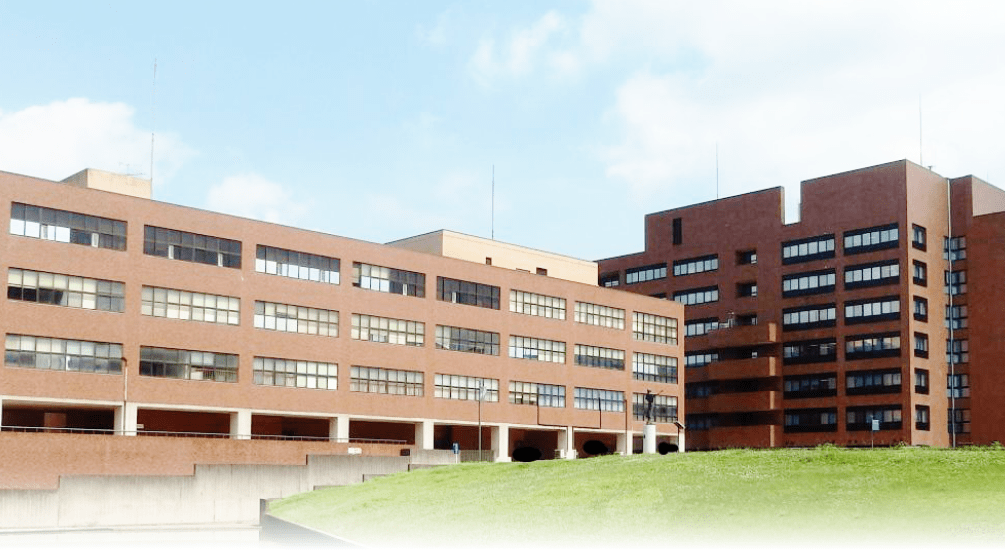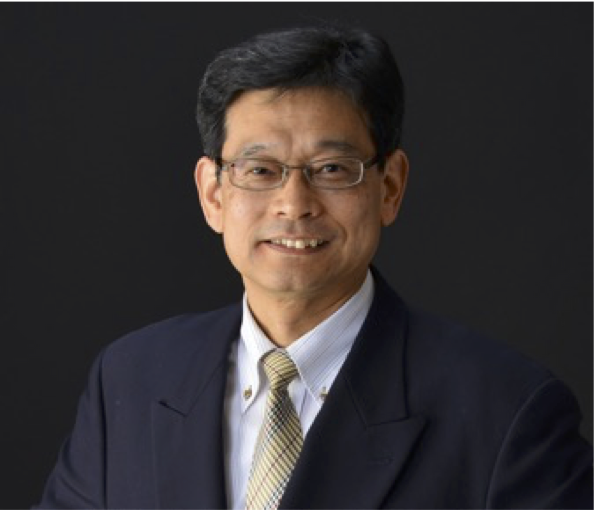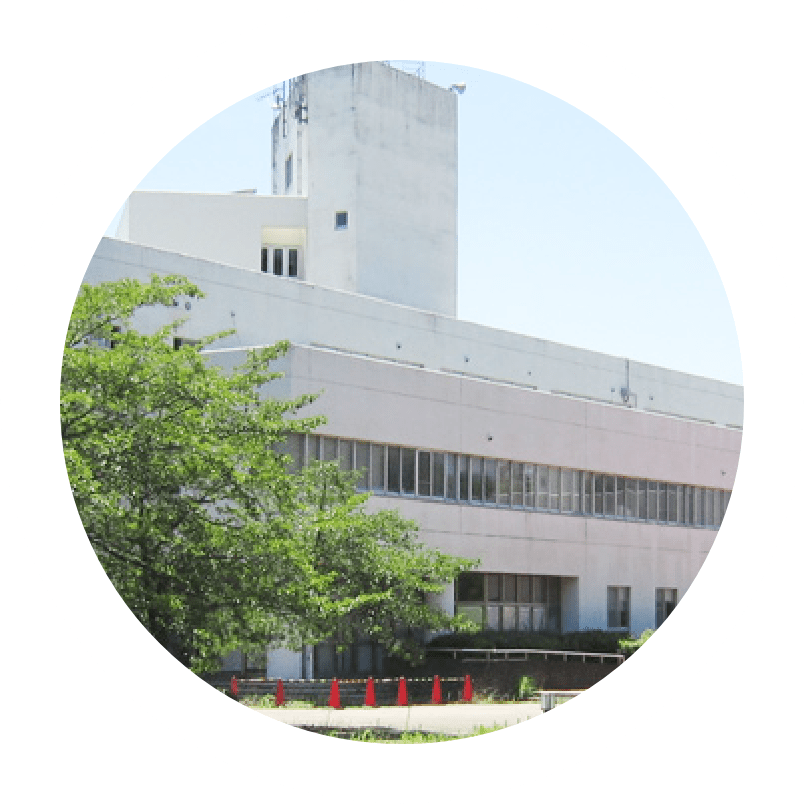Creating a future information environment
in the field of informatics
Human intellectual activities developed by utilizing information technology. We fully understand its social and cultural foundations and create a future information environment.

School Of Informatics
About the School of Informatics at the University of Tsukuba
The School of Informatics is an undergraduate school, founded in April 2007, aimed toward nurturing specialists in computer science and engineering to deal with the increased dependence on computer systems and networks in recent years. The School offers cutting-edge curricula while maintaining the traditions of the University of Tsukuba, originally founded in 1872, as the Tokyo higher normal school, one of the oldest universities in Japan.
The School is a major international institution for research and education in information science, computer science, and engineering. Additionally, it is one of the largest institutions in Japan and covers theory, practice, research and education from both software and hardware perspectives. There are more than 130 academic members (professors, associate professors and assistant professors) in the School.
- Address
- : Kasuga 1-2 Tsukuba Ibaraki, 305-8550, Japan
- Tel
- : +81-(0)29-859-1110
- : inquiry-inf@inf.tsukuba.ac.jp
Our society and culture have been built on the knowledge and technologies to create, express, record, use and share information and knowledge of our communities. The progress of the information and communication technologies of today has greatly affected communication between humans. The revolutionary growth of the networked information society over the last decade would not have been possible without the rapid progress of the Internet and mobile phone networks.
This fundamental change of our information environment has deeply affected our lives in business and at home. The change has significantly increased the need not only for developing new information technologies but also the need to gain a thorough understanding of our networked information society. The School of Informatics, which is a new school at the University of Tsukuba dedicated to informatics for the 21st century, consists of three colleges:
- the College of Information Science.
- the College of Media Arts, Science and Technology.
- the College of Knowledge and Library Sciences.
The School of Informatics is creating leading professionals who have a profound understanding of the science and technology of information and knowledge and are qualified to work in the growing networked information society.
Dean’s greetings

April 2022
Dean of School of InformaticsTohru Kawabe
Fifteen years have passed since the School of Informatics was established in April 2007. The School aims to develop human resources who can understand social and cultural activities developed by all information technologies such as recording, accumulating, sharing, processing, utilizing, and their related basic sciences to create future information environments.
At the time of the establishment of the school, the domestic service of the smartphone was started in earnest, and it was about time when because Internet access was enabled anywhere anytime, various network services such as SNS (Social Networking Services) had begun to accomplish rapid growth. The field of ICT (Information and Communication Technology) has seen tremendous progress and development. In recent years, the field has been undergoing tremendous progress and development, especially based on DX (Digital Transformation) that makes advanced use of advanced ICT technologies such as CPS (Cyber Physical Systems), AI (Artificial Intelligence), Big Data, and so on. The creation of a future society is becoming increasingly important. In recent years, in particular, the creation of a new society based on DX (Digital Transformation) that highly utilizes advanced ICT technologies such as CPS (Cyber Physical Systems), AI (Artificial Intelligence), and Big Data, etc., is becoming increasingly important.
In order to respond to the background of the times and the needs of society, the school is composed of three colleges: College of Information Science (student capacity 80 and transfer student capacity 10); College of Media Arts, Science and Technology (student capacity 50 and transfer student capacity 10); College of Knowledge and Library Sciences (student capacity 100 and transfer student capacity 10). In April 2022, about 130 faculty members are involved in teaching and research.
The curriculum covers virtually all aspects of information sciences such as the fields of science and engineering including programming, algorithms, mathematical science, communication technology, natural language, and music, sound, and image processing technology, and the interdisciplinary field of integration of arts and sciences related to cognitive science, media content, as well as the field of humanities and social sciences, such as knowledge science, information management, and library science. It covers a wide range of areas from the foundational to the applied areas of the discipline. In addition, we are also committed to training engineers and researchers with comprehensive practical skills. One example of this is the “Embedded Technology Campus OJT (On the Job Training) program”, an industry-academia collaboration program conducted in cooperation with leading-edge ICT companies.
The University of Tsukuba is “open in every sense” in its policy and the aim to “Continue to be a Front-Runner in envisioning and realizing the future”. I sincerely hope that all of you who are full of dreams, hopes, and ambitions will join us at the School of Informatics to learn, think, worry, work hard, and grow together to become human resources who will “Create the future information environment”.
Overview of Colleges in the School of Informatics

Pioneer of information and communication technology
College of Information Science
The college is designed not only to help students master the current technology but also to train them how to think critically and develop insights to solve various problems. About 30% of graduates are employed in production industries such as computers, electronics, automobiles, and service industries such as banks, trading companies, and mass media companies. About 70% enroll in graduate schools.
- Address
- : Office for the College of Information Science at the University of Tsukuba, 1-1-1 Tennodai, Tsukuba, Ibaraki, 305-8573, Japan
- Tel
- : +81-(0)29-853-4962

Advanced application of information technology
College of Media Arts, Science and Technology
The College of Media Arts, Science and Technology offers lectures by those people active at the forefront of content and media businesses. This allows students to learn methods and approaches for creating the new ideas and concepts necessary for applied development and business development and to acquire the ability to propose, materialize, and implement project plans.
- Address
- : Academic Service Office for the Library, Information and Media Sciences Area at the University of Tsukuba, 1-2 Kasuga, Tsukuba, Ibaraki, 305-8550, Japan
- Tel
- : +81-(0)29-859-1110

Knowledge building for the future
College of Knowledge and Library Sciences
The discipline of library and information science deals with the integration of understanding and the culture of information, cultivated by libraries since ancient times, with computer-based information sciences and technologies. Through an education curriculum which balances knowledge and techniques related to this science with theory and application, the College of Knowledge and Library Sciences intends to provide instruction to persons both distributing and providing information in our highly data-centered society.
- Address
- : Academic Service Office for the Library, Information and Media Sciences Area at the University of Tsukuba, 1-2 Kasuga, Tsukuba, Ibaraki, 305-8550, Japan
- Tel
- : +81-(0)29-859-1110
